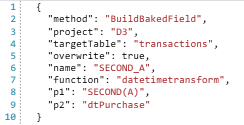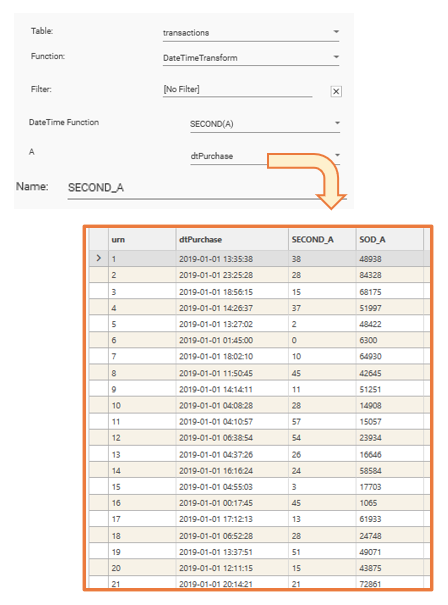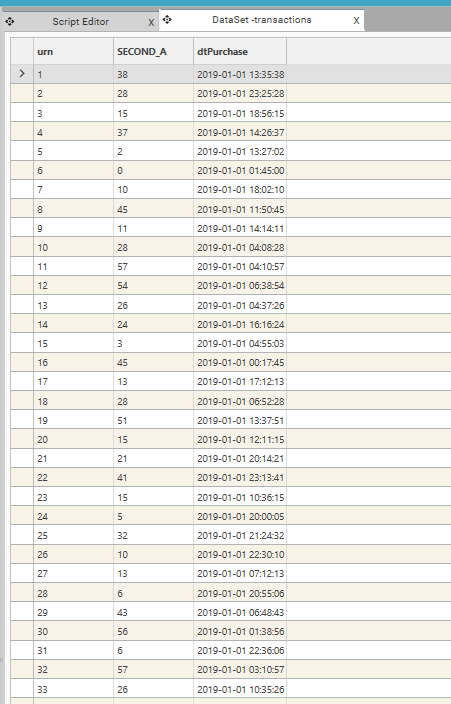DateTime Transform: SECOND(A)
Returns the SECOND portion of DateTime A
Purpose
Use this function to:
- Extract the second section of a DateTime string
Return Value
| Property | Value |
|---|---|
| FieldType | Integer |
| FieldSize | Med |
| DataType | Discrete |
| DataSize | Short |
Example Return Value: 0 to 59
Parameters
| Parameter | JSON | Description |
|---|---|---|
| Table | “targetTable”: “MyTableName” | The target table on which the new field will be created |
| Filter | “dataset”: {DataSet_JSON} | Optional. If a filter is applied, records not in the filter Recordset will be returned as null. |
| DateTime Function | “p1”: “SECOND(A)” | SECOND(A) |
| A | “p2”: “DateTimeFieldName” “p2”: “#YYYY-MM-DD HH:MM:SS” | Required. The DateTime string from which to extract the seconds Supports:
|
JSON Sample

Usage Notes
To return the number of seconds since the start of the day, use the SOD(A) function.
See Also:
- MINUTE(A) (DateTime)
- HOUR(A) (DateTime)
- Engineering | Expression Field
Example
| Example | Details |
|---|---|
| Description | Group transactions by the second |
| Input |
|
| Sample |  |
